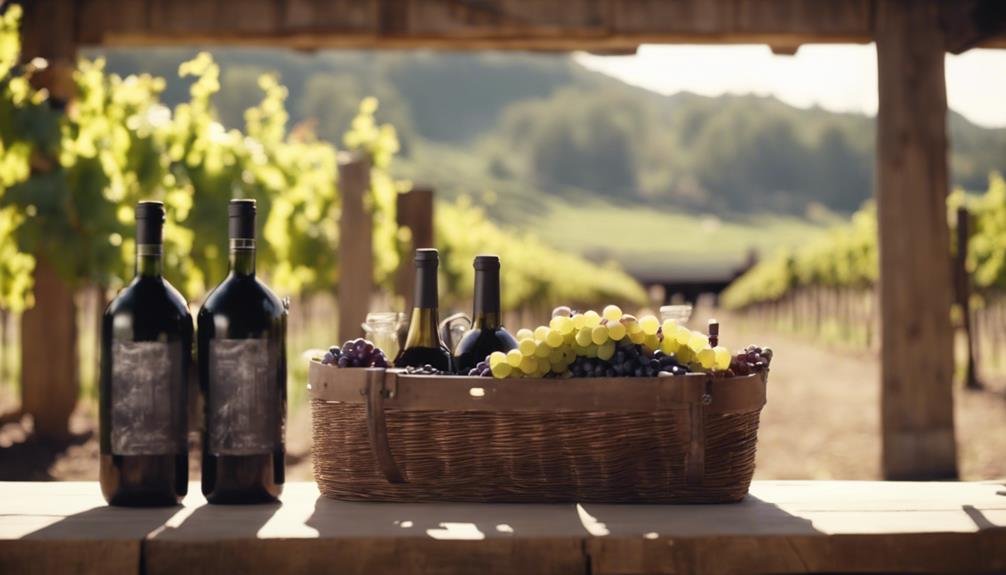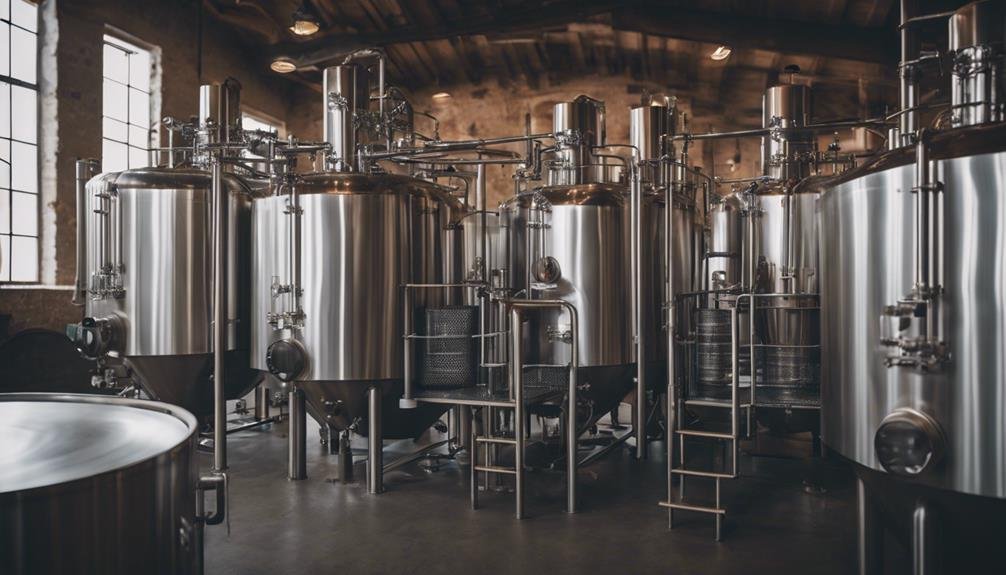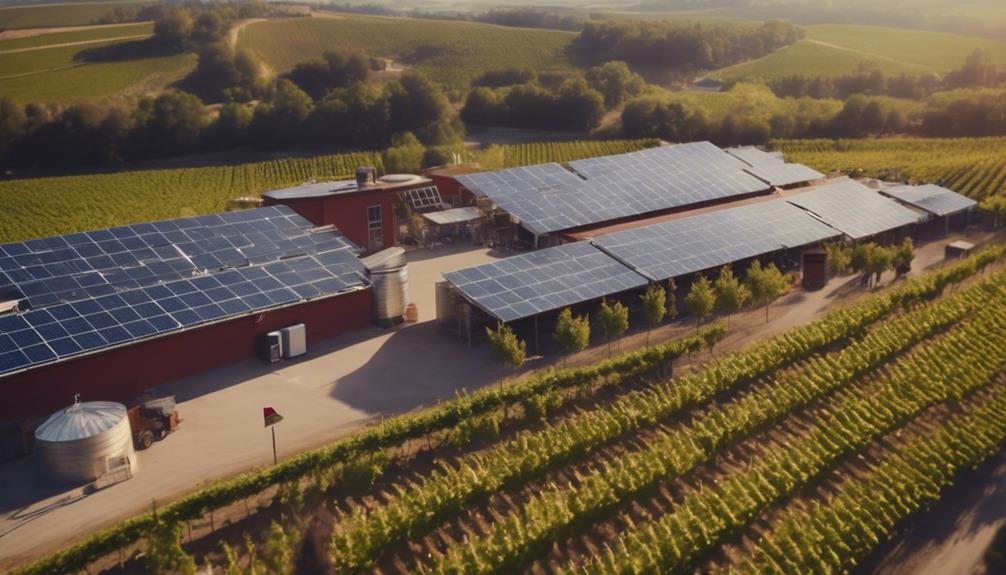Zero-Waste Wineries are leading sustainable practices in the spirit market by repurposing excess waste into premium products, reducing environmental impact. These wineries showcase a commitment to ethical and environmentally conscious practices while catering to consumer demands for innovative alcoholic offerings. By transforming surplus materials into high-quality spirits like brandy and vermouth, they highlight the potential for delicious products with a focus on environmental responsibility. The use of antique copper stills and cutting-edge technologies adds authenticity and quality to their distillation processes. Discover how these wineries are setting new standards for sustainability and craftsmanship in the spirits industry.
Zero-Waste Wineries: A Sustainable Approach
Zero-Waste wineries represent a sustainable approach to the spirits market by transforming excess waste into valuable products like brandy and vermouth. These wineries adopt sustainable practices that reduce their environmental impact by repurposing surplus materials that would otherwise go to waste.
By converting grape pomace and other by-products into high-quality spirits, zero-waste wineries minimize their carbon footprint and contribute to a more eco-friendly production process. Through innovative techniques and a commitment to sustainability, these wineries set a positive example for the industry, showcasing the potential to create delicious spirits while prioritizing environmental responsibility.
Embracing this ethos not only benefits the planet but also appeals to consumers who value ethical and environmentally conscious practices in the products they enjoy.
Distilled Spirits Trend in Wineries
The rising demand for distilled spirits within wineries reflects a notable shift in consumer preferences towards innovative and diverse alcoholic offerings. Wineries are increasingly focusing on spirit repurposing and sustainable distillation practices to meet this demand.
By repurposing surplus wine into brandy or vermouth, wineries like BYOB in Seattle are not only reducing waste but also creating unique and high-quality spirits. Antique copper stills, like the one used at BYOB, play an important role in sustainable distillation processes.
This trend not only allows wineries to utilize excess resources efficiently but also introduces new and exciting products to the market. Embracing sustainable distillation techniques not only benefits the environment but also caters to the evolving tastes of consumers seeking distinctive spirits.
BYOB Winery: Sustainable Practices

Implementing sustainable practices, BYOB Winery in Seattle showcases a commitment to environmental stewardship through its innovative approach to repurposing surplus wine into high-quality spirits. This winery employs sustainable distillation techniques and waste reduction strategies to transform excess wine into brandy and vermouth, contributing to the zero-waste ideology gaining traction in the industry.
By utilizing surplus wine that would otherwise go to waste, BYOB Winery not only minimizes environmental impact but also creates unique spirits for consumers to enjoy. The use of an antique copper still from Turkey adds to the charm and authenticity of the distillation process.
Canas Feast Vermouth Success Story
Canas Feast Vermouth has emerged as a notable success story in the world of craft cocktail components, showcasing a unique approach to vermouth production that has garnered attention in Portland and Seattle cocktail scenes. This Vermouth revolution has highlighted sustainable winemaking practices and the creation of unique blends that cater to the evolving demands of the market.
Canas Feast's Chinato d'Erbetti, made from nebbiolo grapes, quinine, and botanicals like clove and vanilla, quickly gained popularity, selling 50 cases within the first two months. Despite initial hesitance towards additives in wine, Chinato became a sought-after ingredient in craft cocktails, solidifying Canas Feast's position as a frontrunner in the craft cocktail industry.
Innovations in Brandy Production

Embracing modern distillation techniques has revolutionized the landscape of brandy production, introducing innovative methods that elevate the craft to new heights.
Brandy innovation now includes eco-friendly distillation practices that prioritize sustainability without compromising quality. Wineries are implementing cutting-edge technologies to reduce waste and energy consumption in the distillation process, leading to a more environmentally conscious approach to crafting this beloved spirit.
By utilizing eco-friendly distillation methods, such as recycling winery by-products and implementing energy-efficient processes, brandy producers are not only reducing their environmental impact but also creating unique and high-quality products.
These advancements in brandy production showcase a commitment to both tradition and innovation, ensuring that consumers can enjoy premium brandies while supporting sustainable practices in the spirits industry.
Frequently Asked Questions
How Do Zero-Waste Wineries Handle Surplus Wine in Their Production Process?
In managing surplus wine sustainably, zero-waste wineries employ innovative production processes to repurpose excess wine. Through meticulous planning and resourcefulness, these establishments minimize waste by transforming surplus wine into valuable products, aligning with their zero-waste ethos.
What Are the Key Factors Driving the Trend of Using Surplus Wine to Make Distilled Spirits?
Reducing waste and sustainability initiatives are driving the trend of using surplus wine to make distilled spirits. By transforming excess wine into brandy or vermouth, wineries like BYOB in Seattle showcase innovation in sustainable alcohol production.
How Does BYOB Winery Incorporate Sustainability Into Its Brandy and Vermouth Production?
BYOB Winery integrates sustainability into brandy and vermouth production through innovative practices. They repurpose surplus wine, employing antique distillation equipment and collaborating with a bitters lab. These waste reduction initiatives contribute to a more environmentally conscious and efficient operation.
What Factors Contributed to the Success of Canas Feast's Unique Vermouth, Chinato D'erbetti?
Canas Feast's Chinato d'Erbetti vermouth success stems from its unique ingredients like nebbiolo grapes and sustainable practices. By combining quinine, clove, and vanilla with premium elements, Canas Feast crafted a distinctive vermouth embraced by craft cocktail bars.
What Innovative Techniques Are Used by Wineries Like Germain-Robin in Crafting Unique Brandies?
Wineries like Germain-Robin employ innovative techniques in crafting unique brandies through craft spirits. They utilize premium grapes like Pinot Noir and Chenin Blanc, blending traditional craft-method distillation with modern practices to create distinct and sought-after products.
Conclusion
To wrap up, zero-waste wineries are revolutionizing the spirit market with their sustainable practices and innovative approach to repurposing surplus materials.
As the demand for environmentally friendly products continues to rise, these wineries are leading the way in crafting unique and locally sourced alcoholic beverages.
With their commitment to sustainability and craftsmanship, zero-waste wineries are not just making a splash in the industry – they're creating a tidal wave of change that is reshaping the way we think about winemaking.
